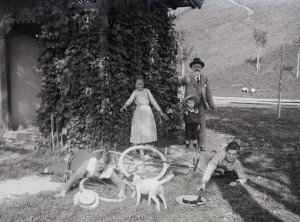 You arrive in a new place—say, New York or New Delhi—and you don’t know there’s cheap public transportation from the airport to the city center. You take a cab, pay an exorbitant ransom to be released at your hotel, then realize you could have done it faster/cheaper/more comfortably by bus or subway. But you didn’t know, because you were green. You were naive.
You arrive in a new place—say, New York or New Delhi—and you don’t know there’s cheap public transportation from the airport to the city center. You take a cab, pay an exorbitant ransom to be released at your hotel, then realize you could have done it faster/cheaper/more comfortably by bus or subway. But you didn’t know, because you were green. You were naive.
You were stupid.
Happens all the time. You accept it, you learn, you pay the virgin’s surcharge. Call it the stupid tax. You move on with more sophistication and aplomb. It is the normal motion of life, or should be, unless you reach that point when you think you should no longer be seen as naive. You refuse to be a newbie, an ingénue, a traveler.
When it starts depends on you. Some children refuse to be inept at age 11. Incompetence becomes unbearable. Other people will embrace the awkwardness of new things, or worse… the frustration of not being able to twist fingers into a chord, the graceless face-plant, the misstep that breaks an ankle…into their eighties.
There’s a good piece on this in Adventure Journal. It’s maybe better than the author—who is in his 30s—can appreciate. He recognizes “the bad thing about being an adult: thinking you know everything. You know what you can do, and therefore you know what you can’t do, too. I’m a bad cook. I can’t fix a car. It’s too late to go back to college. I don’t dance. I’m not a mountain biker.” He can know the risks of thinking you know everything. But he can’t know what a powerful force self-limitation can be at 50 or 60 or older.
But you know.
Photo: Staged bicycle accident circa 1895 by František Krátký (1851-1924), via Wikimedia Commons.









